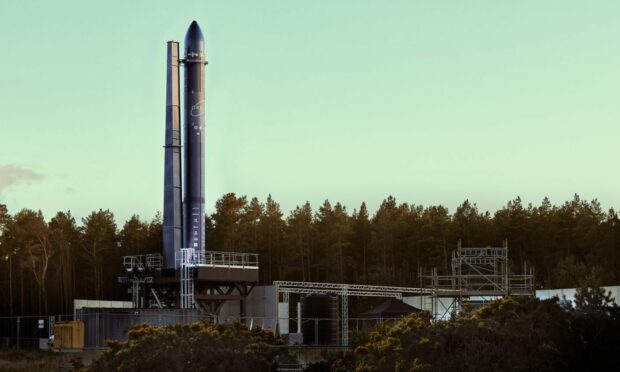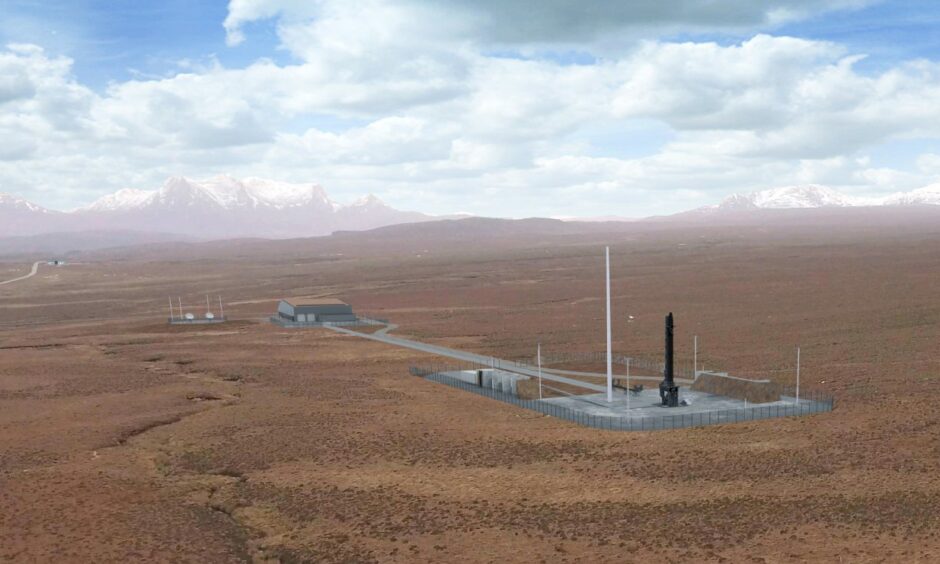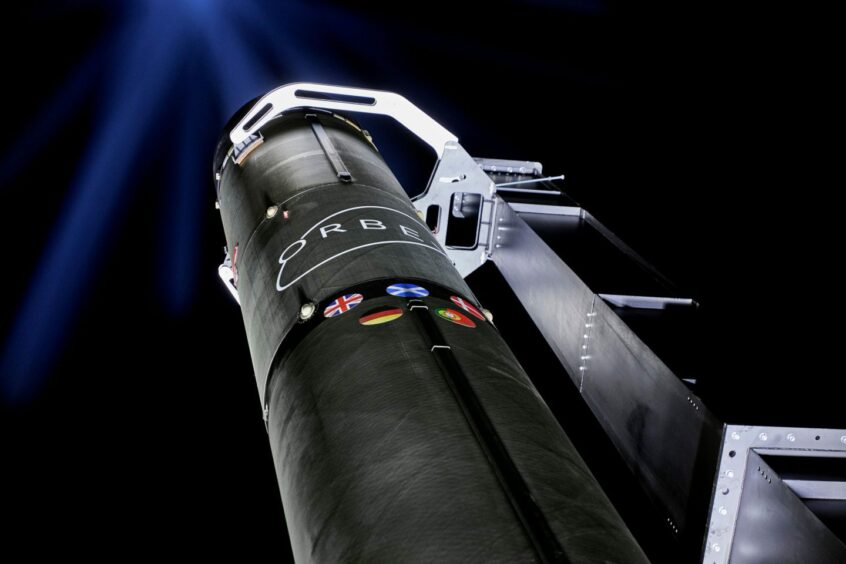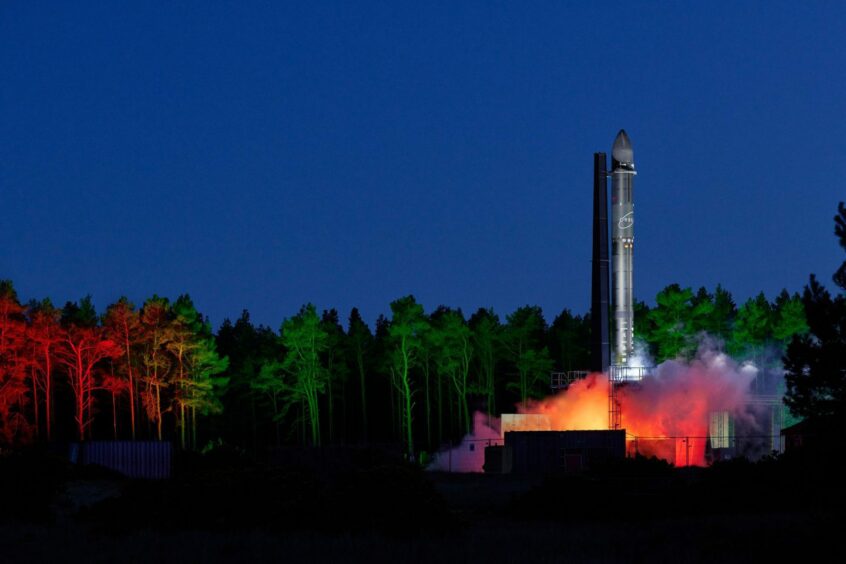Spaceflight company Orbex has unveiled the first full-scale prototype on its launchpad of the Prime orbital rocket due for lift-off from Melness in Sutherland next year.
The unveiling of the first of a new generation of European launch vehicles – designed to launch a new category of very small satellites to orbit – represents a “major step forward” for the Forres-based rocket company as it prepares to make what it hopes will be the first ever vertical rocket launch to orbit from UK soil.
WATCH: Orbex Prime ready for take off
Orbex plans to launch from Space Hub Sutherland, which was the first vertical spaceport to receive planning permission in the UK.
It is one of three such launch sites for rockets currently in development in Scotland, with the sites in Shetland and Sutherland racing to be ready for launch by the end of the year.
Orbex’s Prime rocket is the first “micro-launcher” developed in Europe to reach this stage of technical readiness.
Orbex recently revealed its first test launch platform at a new facility in Kinloss, a few miles from the company’s headquarters at Forres in Moray.

With the first integration of the rocket on the launchpad now complete, the company is able to enter a period of testing, allowing dress rehearsals of rocket lift-offs and the development of procedures.
Several elements have to align for final go-ahead, namely rocket readiness, availability of the spaceport and gaining a licence from the Civil Aviation Authority (CAA), with the company aiming for an early 2023 launch.
Satellites can track wildebeest migration
Once in space, the small satellites will be able to cater for diverse operations including improving connectivity on earth, observing the planet, tracking wildebeest migration patterns and keeping tabs on global shipping movements.
Prime is a 19-metre long, two-stage rocket powered by seven engines designed and manufactured in the UK and Denmark.
The six rocket engines on the first stage of the rocket will propel the vehicle through the atmosphere to an altitude of around 50 miles.
The single engine on the second stage of the rocket will complete the journey to low earth orbit (LEO), allowing the release of its payload of small, commercial satellites.
Environmentally-friendly rocket
Orbex Prime is powered by a renewable bio-fuel, bio-propane, supplied by Calor UK.
Prime is also a re-usable rocket which has been engineered to leave zero debris on Earth or in orbit.
“This is a major milestone for Orbex and highlights just how far along our development path we now are,” said Orbex chief executive Chris Larmour.
“From the outside, it might look like an ordinary rocket, but on the inside, Prime is unlike anything else.
“To deliver the performance and environmental sustainability we wanted from a 21st century rocket we had to innovate in a wide number of areas – low-carbon fuels, fully 3D-printed rocket engines, very lightweight fuel tanks and a novel, low-mass reusability technology.”
For his part, UK science minister George Freeman added: “This is a hugely exciting time for the UK space and satellite sector as we count down to the first satellite launches from UK spaceports.
Market for small satellites increasing rapidly
“Orbex Prime is a remarkable feat of engineering from a British rocket company.
“It is also fantastic to see Moray-based Orbex creating more high-quality jobs, demonstrating the value of our space sector to support emerging clusters of innovation to help level up the whole of the UK.”
The market for small satellites is increasing rapidly as a wide range of new small satellite constellations are developed and deployed.

Micro-launchers such as Orbex Prime give satellite manufacturers a dedicated launch service in contrast to larger “rideshare” launchers, where small satellites are often a secondary payload and frequently face significant delays.
Orbex has its headquarters, production and testing facilities in Scotland, with design and testing sites in Denmark.
Company staff members have backgrounds with NASA, European Space Agency (ESA), Ariane and several commercial spaceflight organisations.






Conversation